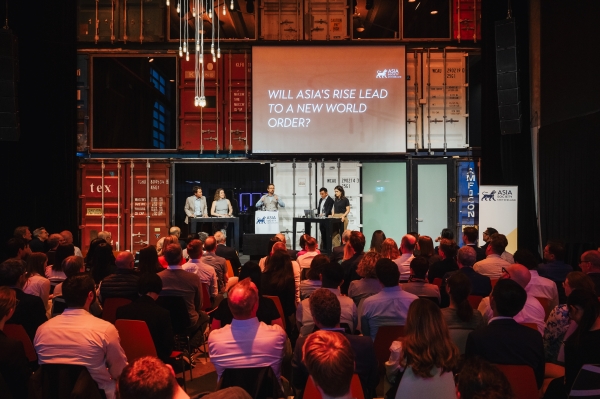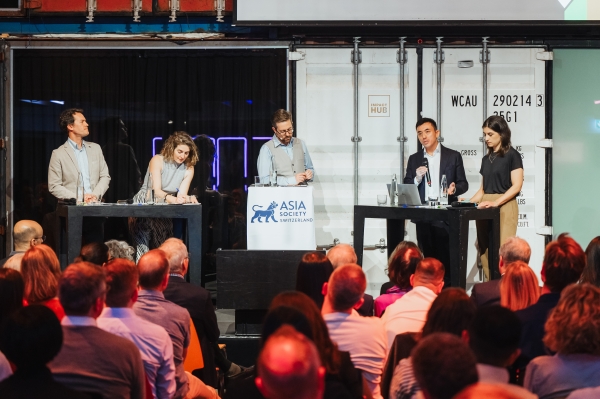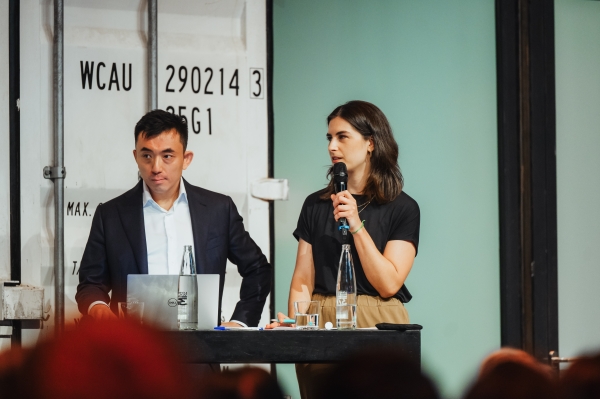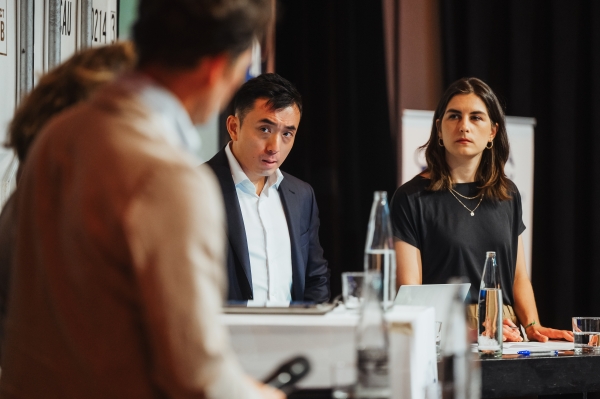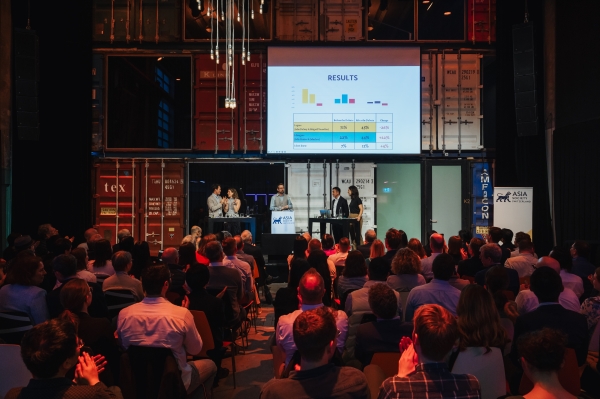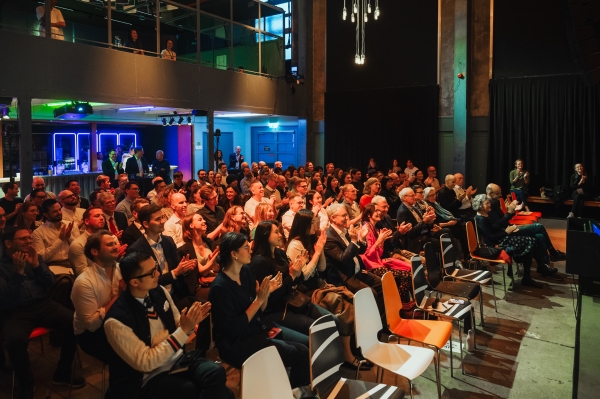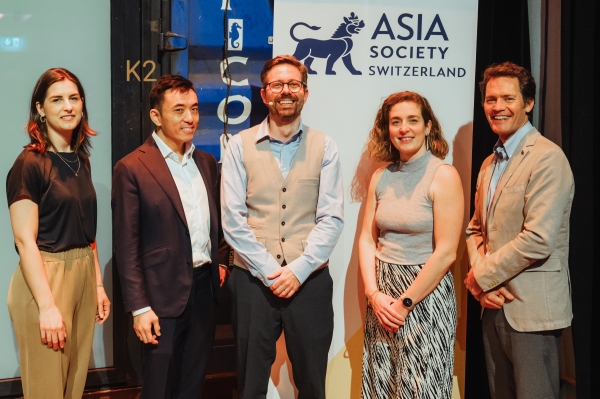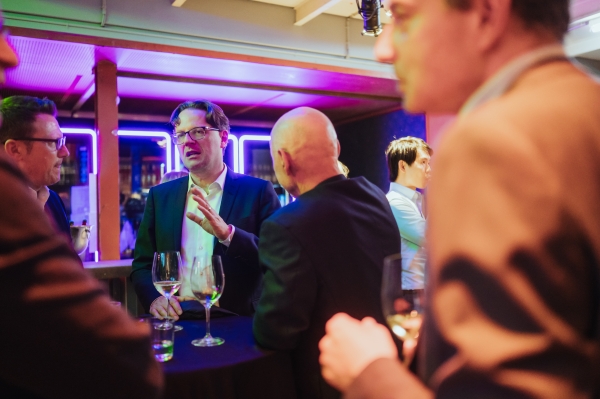Oxford Debate: A New World Order Isn't Top of the Wish List
Four experts on the geopolitical consequences of Asia's rise
ZURICH, April 8, 2024 - In this Oxford Debate, John Delury, Abigaël Vasselier, Julia Ganter, and John Lee are debating whether Asia's rise will lead to a new world order. As the balance of power shifts eastwards, will the world order inevitably change, as the idea of West – and the collective order it created and dominates – is in decline? Asia is far from a monolithic actor, and for all the talk about an "Asian Century", there is arguably no coherent vision from Asia on how the global community should operate. And many countries, especially China, have benefitted in the past from the current system, and might seek to adjust rather than replace it.
Hear arguments supporting and opposing the idea of Asia's rise leading to a new world order. Watch the video of the full debate above. Listen to all arguments in this episode of our STATE OF ASIA podcast, and read our key takeaways below.
Disclaimer: Positions presented in the debates do not necessarily represent the speakers’ views.
Key Takeaways
Asia is rising at speed, as U.S. hegemony falters
After 30 years of political changes and economic growth, Asia’s rise is at a speed and on a trajectory no one had anticipated. By 2030, 3 out of 4 top global consumer markets will be in Asia. The region will account for half of global output by mid-century. This is the new reality: a new world order, shaped by Asia.
The era of U.S. unipolar dominance, that started at the end of the Cold War, is ending. The country is staggering to the finish line. It’s role as a global leader has disappeared and the U.S. now has to acknowledge it once again has competitors.
Meanwhile, Asia is creating some future world order, although we don’t yet know exactly how that will pan out or how chaotic it could get. Further fragmentation seems certain.
A new world order isn’t top of the wish list for many countries both in and outside of Asia
Emerging middle powers, both in Asia and in other regions of the world, don’t seek revolution or a new world order. They are much more interested in reforming and improving existing key elements of the global order like the UN and the G20, and to take up a leadership role in global challenges like climate change.
Instead of a new world order, Asia’s rise is enabling a shift to a system that is more advantageous to more people. We are witnessing a rebalancing, where countries around the world which have wanted a different distribution of, for example, the benefits of international trade, have accumulated the means to do so. They are looking for a greater slice of the pie within the existing international order.
China is at the center of Asia’s rise, but owes that to the existing international order
China can only function as the engine for Asia because it is part of the existing, interdependent global system and has benefitted enormously from that over the past decades.
Most of the Global South looks at China as their preferred model for economic development, all while feeling a new self-confidence. Europe and the U.S. will have to accept that, whether they like it or not.
While China appears to be building its own world order, including organizations like BRICS, the Asia Infrastructure Development Bank, the Shanghai Cooperation Organization, and working on making the RMB a viable alternative to the U.S. dollar as an international currency, the political cost of building a full alternative to the existing world order is unsustainable, even for China. China is an engine, but only as part of an interdependent global system that includes the U.S. and Europe.
Pictures: © André Hengst
About Oxford Debates
The Oxford Debates at Asia Society Switzerland are a format to address ‘big’ questions that have no one answer or solution but are inviting many conflicting views. Four renowned experts in the field form teams of two, one team arguing for the motion, the other against it.
The Oxford-style format is broken down into four sections: opening remarks, rebuttals, a moderated question-and-answer session, and closing remarks. Before and after the debate the audience is polled whether they agree with the motion or not. The voting breakdown is not shared publicly until the end of the debate. The greater percentage change between the first and second votes determines the debate’s winning team.
Speakers
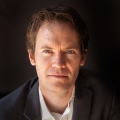
John Delury is a historian and a professor at Yonsei University in Seoul. He is an expert on China's modern history, U.S.-China relations, and Korean Peninsula affairs. John is also a senior fellow at Asia Society and the Pacific Century Institute and a member of the Council of Foreign Relations and the National Committee on North Korea. John contributes regularly to Foreign Affairs, 38 North and Global Asia (where he is an associate managing editor), and his op-eds have appeared in The New York Times and Washington Post. More of his writings can be found in American Foreign Policy Interests, Asian Perspective, Journal of Asian Studies and Late Imperial China. He is often invited to offer his analysis on East Asian affairs with government, think tanks, corporate, and civil society organizations globally.

Abigaël Vasselier is MERICS Director for Policy and European Affairs and heads the Foreign Relations team. Previously, Abigaël worked as Deputy Head of Division for China, Hong Kong, Macao, Taiwan and Mongolia at the European External Action Service (EEAS). Prior to that, Abigaël was a Policy Fellow and Programme Coordinator at the Asia Programme of the European Council on Foreign Relations (ECFR). She has co-authored the book China at the gates: A new power audit of EU-China relations (with François Godement) and several articles related to China's foreign policy and EU-China relations.
Abigaël holds a Master's degree in Asian Studies from SOAS in London. She also graduated in International Relations from Sciences Po Aix and has a Bachelor degree in Chinese language. She studied Chinese at China Foreign Affairs University in Beijing.

Julia Ganter is Programme Director International Affairs at the German foundation Körber-Stiftung. She heads the Körber Emerging Middle Powers Initiative, is the Editor-in-Chief of The Berlin Pulse, the foundation's annual foreign policy publication and public opinion survey, and coordinates the Asia activities of the foundation's international affairs department. Prior to joining Körber-Stiftung, she coordinated the Task Force for Protecting Europe from Economic Coercion at the European Council on Foreign Relations (ECFR). She gained work experience in the Federal Foreign Office in Berlin, the GIZ in Brasília, the German Institute for Foreign Cultural Relations (ifa), from NGO-work in Brazil and as editor of the monthly magazine Lateinamerika Nachrichten. Julia Ganter holds a Master's degree in International Relations from the Free University of Berlin, Humboldt University Berlin and the University of Potsdam.
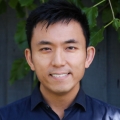
John Lee is director of consultancy East West Futures and a researcher at the Leiden Asia Centre. Previously he was a senior analyst at the Mercator Institute for China Studies and worked at the Australian Department of Foreign Affairs and Trade and Department of Defence. John's work focuses on China’s advanced technology industries, especially semiconductors, telecoms and internet of things technologies, as well as China's cyberspace regulation and engagement with global internet governance. He co-leads the China Semiconductor Observatory project funded by the European Union. John's analysis and research has been published by various international media outlets and academic presses.
Event Partners
Impact Hub Zürich: The global community of entrepreneurial people prototyping the future of business. At Impact Hub, you can connect, collaborate, co-work and create great content in an inspiring environment.



